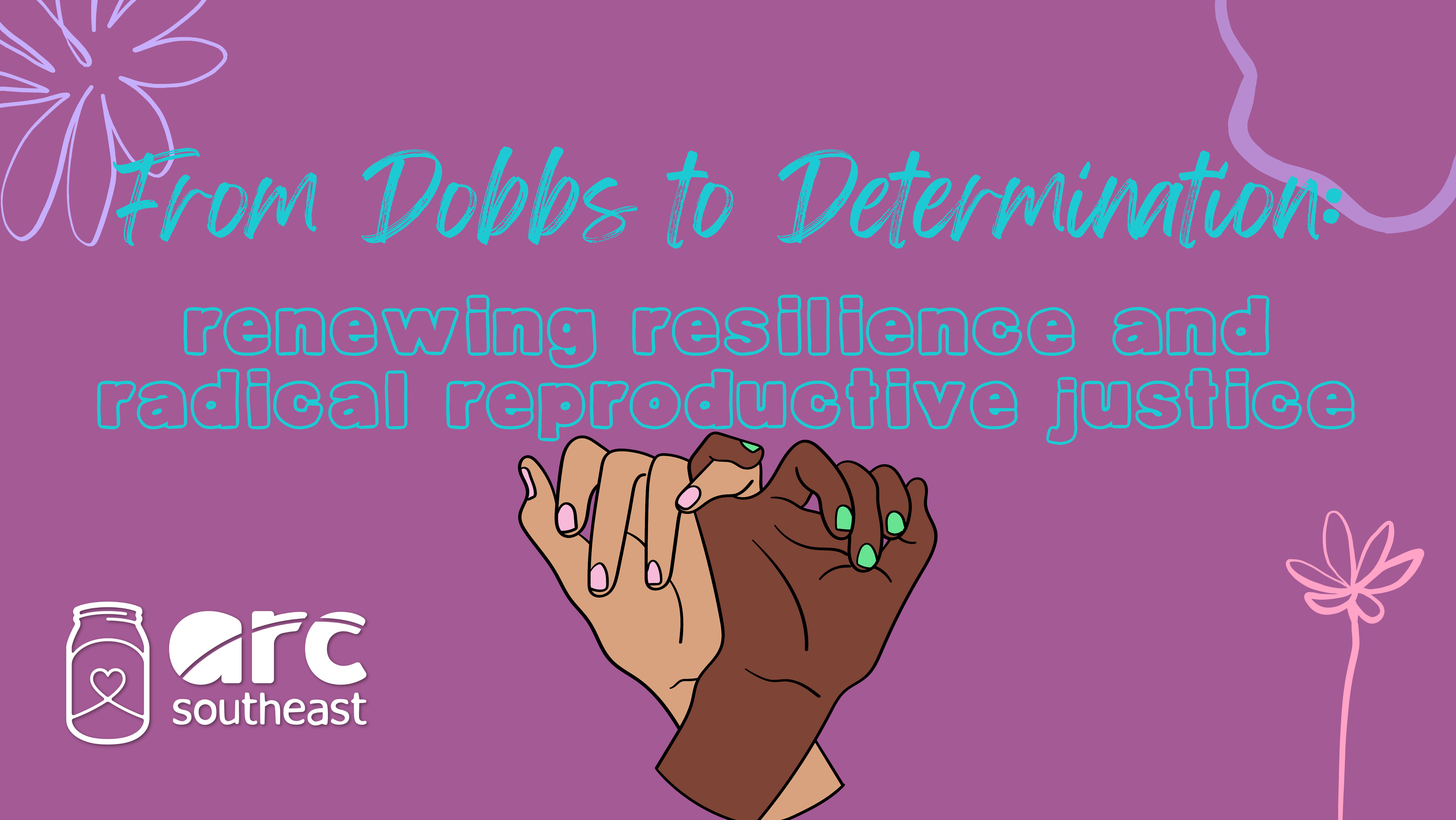Dear supporters,
Today, a year since the historic Dobbs v. Jackson Supreme Court decision challenged the fabric of reproductive rights, we find ourselves navigating a relentless storm of attacks on reproductive justice as a whole. Across the South, anti-abortion legislators have been introducing and passing abortion bans and regressive measures that seek to strip away the autonomy and dignity of those seeking essential reproductive services. But even in the face of this, we still have an unwavering commitment to reproductive justice and resisting against the oppressive forces that endanger the well-being of our communities.
In the wake of last year’s Supreme Court decision overruling Roe v. Wade, we find ourselves confronted with the reality that the victories of the past that were won through struggle are under siege. The landscape is fraught with hundreds of bills and laws that criminalize and outlaw abortion, especially across the South, endangering the lives and well-being of countless individuals. We’ve witnessed an increasing assault on abortion access, orchestrated by those who seek to control our bodies, deny us the agency to make decisions about our own lives, and profit from forced births.
We are confronted with a stark reality that underscores the devastating consequences of post-Roe abortion bans on reproductive rights. Recent data paints a chilling picture: legal abortions plummeted by over 6% in the six months following the Dobbs decision, as thousands of individuals with limited options have been forced to travel farther and wider for accessible care or jeopardize their well-being by resorting to less safe methods as states across the country impose abortion bans.
Predictably, the consequences of these bans have been most acutely felt across Southern states where abortion bans have been actively enforced in the most restrictive methods possible. In some states, abortion bans have been met with legal challenges in court—intentionally creating confusion about what reproductive services are and aren’t banned, in order to confuse and intimidate both service providers and seekers. For example, in Georgia a near-total six week abortion ban didn’t go into effect immediately after Dobbs and was temporarily suspended last November when it was challenged in court – and yet, the state saw one of the largest decreases in abortions across the country, second only to Texas.
These relentless attacks on reproductive care have an extremely disproportionate impact on people of color, especially Black and Latinx individuals. Over 82% of our Healthline callers are Black, with the next largest demographic of people identifying as Latinx. The weight of these anti-abortion laws falls most heavily on the shoulders of our communities, exacerbating existing systemic inequities and compounding the challenges our folks face.
We must never forget that behind each statistic lies a person — a person who has faced unimaginable challenges, who has had their bodily autonomy curtailed, and who has been denied the right to make decisions about their own body and health. The impact is not merely statistical; it reverberates through lives, families, communities, and futures. This is why ARC-Southeast firmly believes that in the fight for reproductive justice, it is essential to recognize the interconnectedness between the struggles against oppressive systems. We must address the alarming disparities in resource allocation, such as the proposed $90 million urban warfare training facility, AKA ‘Cop City’, which continues the troubling reality of funds flowing into police budgets, empowering armed agents of the state, while essential reproductive and medical care is woefully underfunded.
The same majority Black and Latinx community members on the frontlines of reproductive violence, calling us for support, are also the most vulnerable to the violence of the existence of Cop City. The excessive funding allocated to police agencies perpetuates a cycle of violence and surveillance, in the context of increasingly politically polarized and violent times, and disproportionately impacts the communities we support. The anniversary of the Dobbs decision also provides us with the necessary context to examine these connections and make it clear who will be enforcing these oppressive anti-abortion policies. It’s time for the larger reproductive justice movement to join us in demanding our work be seen in connection with other movements against state violence and oppression. It is a matter of justice and equity to challenge the allocation of resources and political energy that sustain systems of oppression, while neglecting the critical needs of our communities.
Now, more than ever, we must be united. We call upon our supporters, callers, and all who believe in the fundamental rights and dignity of every individual to join us in this crucial fight. Reproductive justice demands an examination of the larger structures that perpetuate inequality, and by actively engaging in ARC-Southeast’s daily work of supporting people with financial and logistical assistance, we strive for a future where reproductive and medical care take precedence over the perpetuation of systemic violence. It is through collective action and a steadfast commitment to justice that we can pave the way for a society that prioritizes the holistic well-being and dignity of us all.
On this anniversary, we invite you to join us in the unwavering fight for reproductive justice.
